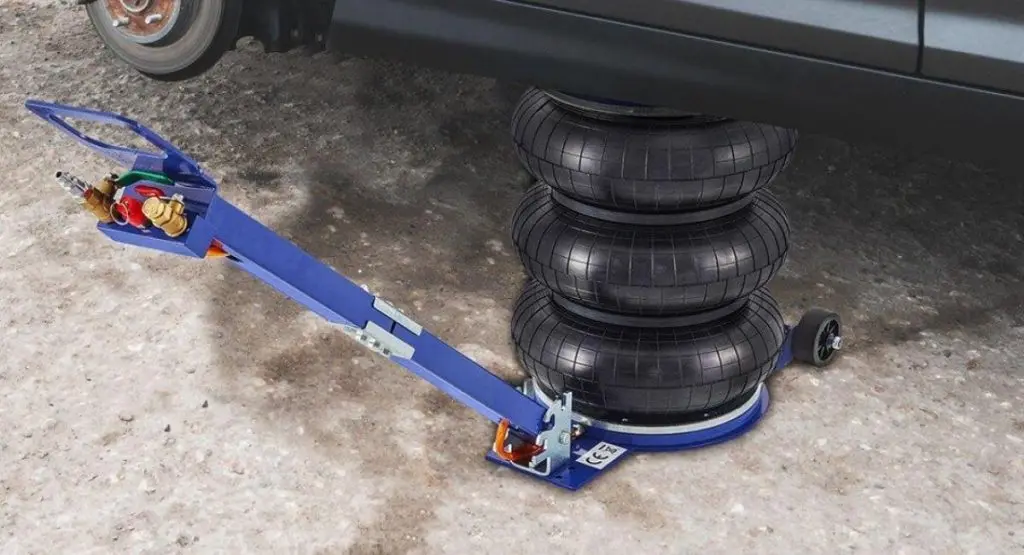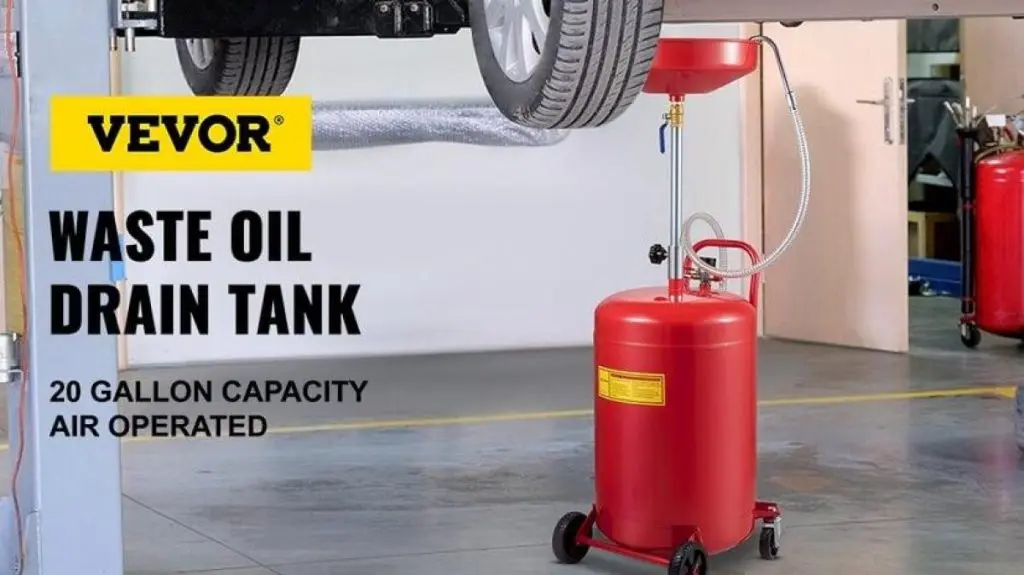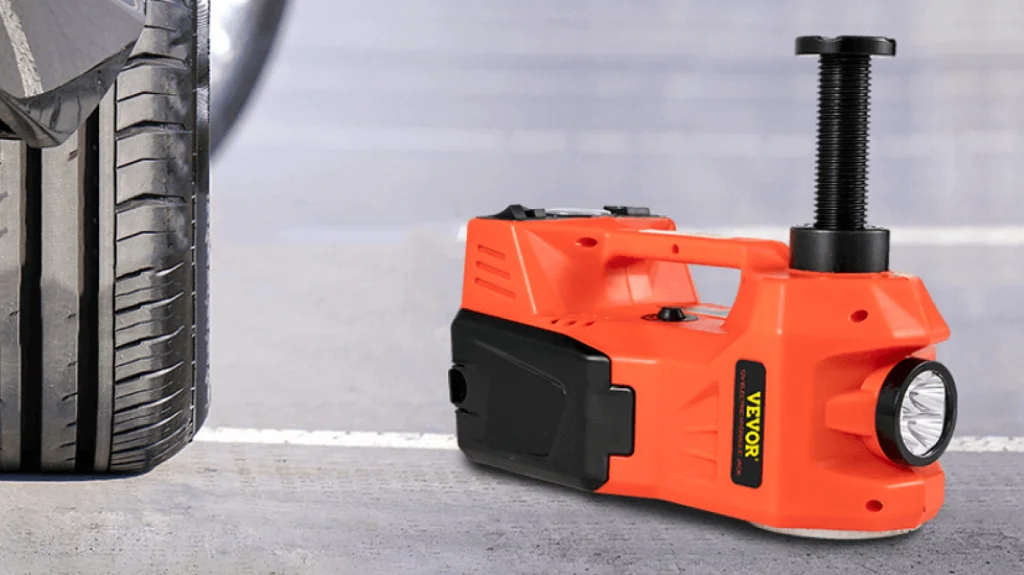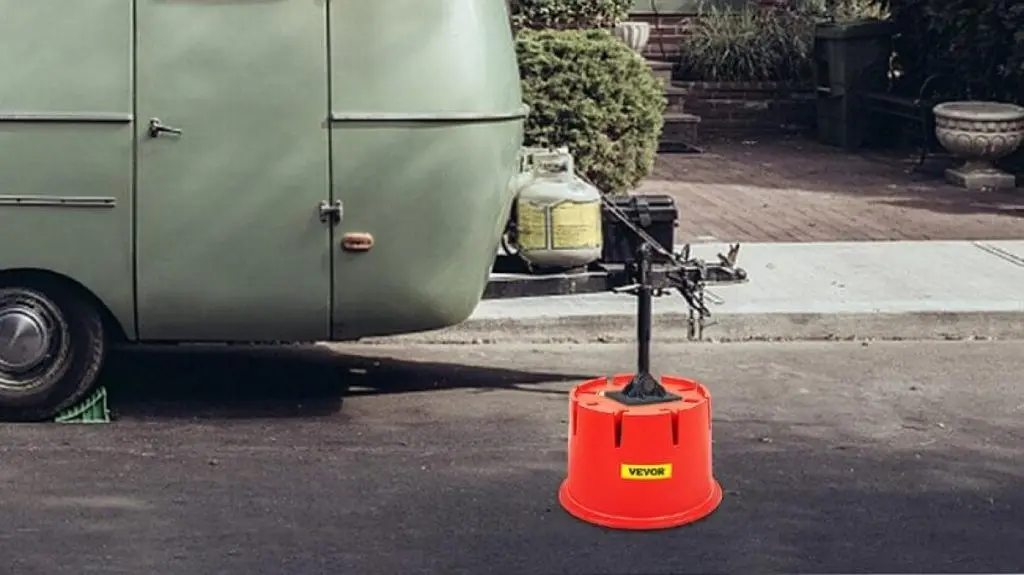Hydraulic jacks are mechanical devices renowned for their utility in lifting heavy loads off the ground via the force of hydraulic fluid. However, despite their durability and efficiency, even the best car jacks could develop faults that require fixing.
Whether your hydraulic car jack won’t lift or it has refused to stay down, we’ve compiled handy tips to help you complete common hydraulic car jack repairs in this comprehensive DIY guide on how to fix a hydraulic jack. You’ll also find helpful maintenance tips to help you keep your car jack up and running for longer without needing to replace it frequently.
Meanwhile, suppose you need a recommendation on a reliable hydraulic car jack brand to work with, we believe the VEVOR hydraulic jack is a great option to meet your unique lift needs. Each item from VEVOR’s car jack collection promises a blend of durability, efficiency, and class – with competitive prices than what you’ll find in other comparable brands.
Table of contents
Understanding Hydraulic Car Jacks
The first step to ensuring your hydraulic car jack lasts long involves getting a knowledge grasp of a car jack, how it works, and, of course, how to repair car jacks, hydraulic ones especially. Here’s exploring the basics of a hydraulic car jack, its different types, plus common utility cases.
What is a Hydraulic Car Jack?
A hydraulic jack is a mechanical device often used for lifting a slew of heavy loads by applying the force of a pressured hydraulic fluid. The device wins mechanical advantage from the hydraulic fluid and leverages it in lifting processes or converting an initially small force into a large force – all via the displacement of a large piston.
A typical hydraulic jack consists of a hydraulic fluid, a piston, a pump, a reservoir, and a reservoir. The piston moves upward or otherwise under the influence of a flowing hydraulic fluid, providing the mechanical advantage necessary for the lift.
Car jacks come in different types: floor jacks, bottle jacks, scissor jacks, trolley jacks, transmission jacks, car stands, high lift jacks, and several more.
Common Uses of Hydraulic Car Jacks
Hydraulic car jacks have multiple applications in both industries and domestic environments. Let’s see some of the most common uses of hydraulic car jacks today.
Automotive Repairs
Automotive manufacturing and repair outfits use hydraulic jacks to raise and lower vehicles to a high level of control and precision. Such operations allow auto professionals to inspect and work around the automobile’s undercarriage.
Construction and Industrial Applications
Construction workers use hydraulic jacks to lift structures, equipment, and other materials on a construction site. Common applications in this niche include integration into equipment like forklifts, bulldozers, elevator systems, and more.
Meanwhile, industries use hydraulic jacks to accomplish various material handling/lifting tasks. Mining factories use hydraulic jacks to remove large chunks of rocks that could pose a significant obstacle to mining processes. Other industrial applications of hydraulic jacks include marine technology, aerospace operations, and agricultural machines.
Emergency Roadside Assistance
Here’s probably the most ubiquitous need for a hydraulic car jack among consumers. Vehicle owners sometimes run into minor issues with their automobiles that require some quick fix or check on the vehicle undercarriage. An efficient car jack becomes handy when the car suddenly develops some fault by the roadside and needs emergency repairs.
Identifying Common Issues with Hydraulic Car Jacks
Even the most efficient or durable hydraulic car jack comes with its issues. Let’s see some of the most common issues with hydraulic car jacks, plus the symptoms to look out for to indicate the class of car jack repairs needed.
Hydraulic Jack Not Working: Common Problems
Hydraulic car jacks have common issues across their different types. Regardless of your type of hydraulic jack, looking out for some common symptoms can help you identify the required maintenance or repair tips to get it back in shape right away.
Hydraulic Jack Releases Slowly
Fluid-driven pressure helps jacks create movements. However, if there’s a bitch in flow, you’d find some difficulty using the lift.
Handle Kicks Back
Did you ever find your hydraulic jack handle kicked back up after a downstroke? Stop using the jack immediately as such a condition is extremely dangerous for operators. Thankfully, taking your jack to an operator could restore this unit’s functions.
Hydraulic Car Jack Won’t Go Up
When your hydraulic car jack won’t go down or stay up, its hydraulic fluid is likely in short supply. If your hydraulic device won’t stay up, add more fluid, here’s a step-by-step guide to revamping it:
- Turn the jack to its release spot
- Pump the released trapped air a few times;
- Refill the reservoir with quality hydraulic fluid.
These three steps should make your hydraulic jack not stay up history as you extend its useful lifespan for your domestic or industrial lift needs.
Why Your Hydraulic Jack Won’t Lift
Getting a quality hydraulic car jack is paramount for longer years of efficient and safe lifting operations. However, even the best jacks could develop issues due to a range of issues. Is your quality hydraulic car jack not working? Here are possible reasons to look out for.
Fluid Leakage
Fluid leakage could indicate a range of potential issues, depending on which fluid is leaking from the equipment. You want to thoroughly examine your hydraulic jack or take it to an operator to effectively decipher the issue in question.
Discolored Oil
If the oil is discolored, looking milky, or frothy, it could indicate that water has gotten into the system. You want to remedy such a situation as quickly as possible to avoid irreversible internal corrosion on the jack’s internal parts.
Damaged Car Jack Frame
Low-quality car Jack frames could crumble under a heavy load. Such types of damage are irreparable and demand getting another hydraulic jack.
Squeaky or Damaged Wheels
Is your hydraulic jack producing excessive noise from the wheels? It could mean the wheels require replacement. However, applying heavy oil can produce enough lubricant to extend the life of the metal support structures.
Overloaded Jack Could Trigger Safety Valves
Placing too much load on a jack engages the safety valve, causing the jack to quit lifting. So if your car jack isn’t raising your desired object, you might want to check whether it’s due to excessive load. Where this is the case, refer to the manufacturer’s manual to identify the safety valve, following its reset instructions to recover your safety valve.
Why Your Hydraulic Jack Won’t Go Down
There are different reasons why your hydraulic jack won’t go down, including mechanical obstructions and a stuck release valve. If you find your hydraulic jack not working, i.e. not going down after being raised, you want to try some DIY tips you’ll find shortly in this comprehensive guide. For a start, check the release valve or look out for mechanical obstructions in the path of airflow. Otherwise, check out other helpful tips you’ll find in this guide.
Step-by-Step Guide to Repairing Hydraulic Car Jacks
DIY hydraulic car jack repairs are straightforward and achievable by any car jack owner, regardless of your car jack type or previous automobile experience. Whether you slammed hydraulic car jack won’t lift because it’s slammed or stuck, here’s a handy step-by-step guide to repairing your hydraulic car jacks safely, alongside helpful maintenance tips to keep efficient and in shape for longer.
Safety Precautions Before Starting Repairs
What safety precautions are necessary before starting any hydraulic jack repairs? Here are some crucial safety precautions that’ll come in handy either during emergency repairs by the roadside, at home, or the operator’s.
- Avoid smoking in or around garages, repair bays, or your vehicle as your automobile contains flammable and combustible fluids that could easily get ablaze when in contact with hot ash from a cigarette.
- Keep your work area clean and organized, free of clutter.
- Always wear protective gear at all times: goggles, gloves, and ear protection when making some types of repairs
- Where necessary, keep fire extinguishers close by against all potential fire types.
- Avoid placing hands, tools, or other objects close to a running car engine.
- Never work underneath a vehicle unless it has been adequately supported by a lift.
- Always remove the keys from the ignition switch before any repairs to avoid any electrical spark, shock, or spikes that could damage any electronic parts and wiring in the vehicle. Similarly, disconnect the battery to avoid any electrical accident or fire outbreak.
- At workplaces, all eating and drinking should remain confined to the kitchen or designated break rooms.
- Follow all relevant manufacturer’s manuals
- Where you can’t find the solution to a fault, consult an operator or speak with other car owners around you.
How about the necessary tools and equipment to get in place ahead of the repair process? A few helpful ideas worth noting include:
- Gloves
- Goggles
- Overalls
- Sturdy shoes
- Toolbox (variable, depending on the task at hand)
How to Repair a Hydraulic Car Jack That Won’t Lift
Is your hydraulic car jack failing to lift? Start by checking out the valve for any leaks to ensure it’s airtight. A leaking valve would almost always have a greasy coating around it, indicating a leak. Where there’s a leak or discolored fluid after bleeding, refill the hydraulic fluid with quality replacements to revamp your jack’s functionality and efficiency.
Inspecting and Replacing Worn-out Parts
Look out for cracked welds, destroyed parts, oil leaks, and any other thing that’s out of place in your jack. Flip both sides of the jack’s ram to inspect its retracted and extended states. Rusty pistons could indicate a challenge.
For instance, consider examining the fluid storage for any fluid leaks and inspecting the unit for any rusts or cracks in the piston rod against any other potential damage.
How to Fix a Hydraulic Car Jack That Won’t Go Down
What if your hydraulic car jack won’t go down? Helpful solutions to troubleshoot your hydraulic car jack descent issues include:
- Checking the release valve
- Removing mechanical obstructions; and
- Lubricating moving parts
Check the release valve as described above to ensure it’s tightly in place and not leaning on any hydraulic fluid. If you observe any deviations from the expected, tighten the valve and replace hydraulic fluid as needed, depending on your findings.
Also, look out for any mechanical obstructions to airflow around the unit. Any of these obstructions could prevent a raised hydraulic jack from going down. You want to take such impedance out to get your lift working seamlessly again.
As with all moving mechanical parts, regular lubrication helps to keep the tool in shape at all times. Lubricate all moving parts to avoid rusting or degeneration. Doing any of the three above should get your lift smoothly going down again. Otherwise, try other hacks shared here or reach out to an operator for professional help. They might be able to tell and fix what’s wrong with the jack or recommend a quality replacement.
Maintenance Tips to Prevent Hydraulic Car Jack Failures
Some maintenance tips are necessary to prevent hydraulic car jack failures, ensure maximum safety throughout your repair sessions, and also keep your hydraulic car jack in good working condition for longer. Let’s check out some must-know regular and periodic hydraulic jack maintenance tips to extend your hydraulic car jack’s lifespan.
Regular Maintenance Practices
Regularly maintaining your car jack makes it ready to use whenever an emergency comes up or you need to execute some routine checks on your vehicle. Poor maintenance could cause unnecessary lags in performance or render it completely useless when you want to use it. Regular maintenance practices for your hydraulic jack include:
- Regular inspection and cleaning, looking out for obvious signs of damage, cracks, or leaks in all parts of the equipment.
- Proper lubrication of moving parts to minimize wear and tear during motion and ensure smooth operation.
- Avoid excessive lubrication to prevent the accumulation of dust and debris sticking to the jack and hindering its performance.
- Checking and maintaining hydraulic fluid level and quality for optimal performance
- Where there’s overloading that trips the safety valve, releasing the pressure and ensuring that the access weight instantly works. Allow the device to cool before reuse.
Why Choose VEVOR Hydraulic Jacks
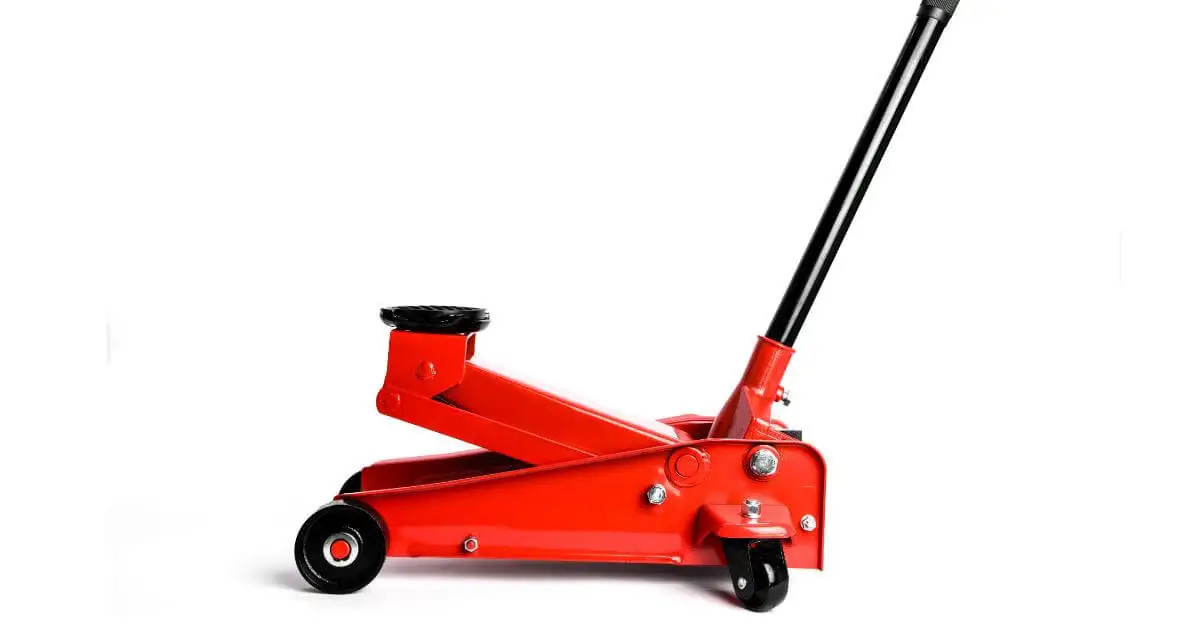
If you need a hydraulic car jack brand that’s very easy to service, maintain, and repair, there’s no ignoring an affordable outfit like VEVOR. VEVOR’s hydraulic jacks boast stellar construction with easily accessible components for your DIY routine checks and maintenance sessions. Meanwhile, all components are properly sealed so there’s no need to fret about frequent corrosion or dust/debris accumulation.
You might also want to check out these customer reviews for some testimonials from real customers who purchased VEVOR’s hydraulic car jacks from our product page.
“Everything worked as advertised. Great price and good quality! I would recommend this Jack to others. Thanks.”
“It’s a good product to help to do mechanic jobs And also it’s very easy to lift the vehicles and you don’t need to hertz any muscle.”
“As advertised. It did what it was supposed to and did it well. I used it to change the oil on my Volt and I was able to use the electric wrench to loosen the nuts and used the jack to lift the car. Put stand up lowered the car and moved Jack out of the way. Changed the oil, and filter then lifted the car again, took out the stand, tightened the lug nuts, and lowered it. Easy peasy. It raised the car high enough to put the stand in, which was always a pain with my other, 4-wheeled jack. It was also much faster to raise and lower.”
“Great tools! The impact removed lug nuts that were installed with a battery-powered snap-on impact. I did roll a car off of the jack once but that’s mostly because I forgot to set the parking brake. Kinda forgot bottle jacks are a little less forgiving in that aspect. The ONLY complaint I can muster with this kit is the doors on the side of the jack/compressor unit don’t latch very well but… So what? Definitely would buy it again 100%.”
“So far has worked perfectly 2 times that I need to use it. I would buy it again thanks.”
How VEVOR Hydraulic Jacks Stand Out
VEVOR’s hydraulic car jacks are excellent in durability and efficiency, surpassing other models, despite being affordable. Depending on your unique needs, VEVOR’s hydraulic jacks offer a range of useful features and specifications for various kinds of users.
The device boasts a powerful motor that can safely lift your vehicle smoothly within a few minutes. Besides being easy to use, VEVOR jacks are also lighter and convenient to haul around in the car. Combining efficiency, durability, convenience, and affordability in one piece, VEVOR’s jacks will undoubtedly make a great buy for any automobile owner looking for a lasting solution to all their garage worries.
Quality Assurance and Warranty Information
Besides the quality that VEVOR’s hydraulic car jacks offer, the brand’s quality assurance and warranty offerings add to its superiority over comparable brands. All VEVOR jacks have a 12-month warranty that ensures you get the best car jack quality.
Moreover, suppose your car jack is dead on arrival, has quality issues, or doesn’t match the product description/order of interest, VEVOR offers you a free 30-day return clause, once the support team approves your request. Should you need any information on VEVOR’s warranty offers or specific information regarding a purchase, visit VEVOR’s help desk for a swift response that aptly caters to your domestic or commercial lift needs.
Troubleshooting and Repair FAQs
Do you still have more questions regarding troubleshooting and repairing a hydraulic car jack? Check out this FAQ for answers to common questions users ask about VEVOR’s hydraulic car jacks.
How Often Should I Service My Hydraulic Jack?
It helps to change the hydraulic jack oil periodically. Consider bleeding and changing your hydraulic jack’s oil at least once every year.
What Should I Do If My Hydraulic Jack Still Won’t Lift After Repairs?
If your hydraulic jack won’t lift after DIY repairs, consult an operator for a professional perspective on a potential way out. Otherwise, your hydraulic jack might require a complete replacement.
Can I Repair a Hydraulic Jack Myself or Should I Seek Professional Help?
Sometimes, the issues with your hydraulic jack surpass your DIY repair skills. In such situations, hire the services of a certified technician so they can fix it and possibly offer helpful tips on safeguarding your car jack from experiencing recurring challenges.
Conclusion
Timely inspection, troubleshooting, and maintenance are vital to ensure that your hydraulic jack lasts longer. However, getting a quality hydraulic jack is nearly as important as practicing DIY hydraulic car jack repair tips. That’s why we recommend VEVOR’s hydraulic jacks for your automobile lift needs.
VEVOR’s hydraulic car jacks combine efficiency, sturdiness, and affordability in all pieces. Additionally, all VEVOR jacks require little to no effort in troubleshooting, repairing, and maintaining them. Visit the VEVOR website to discover their series of efficient and durable hydraulic car jacks today and shop for some high-quality equipment to match your budget.


